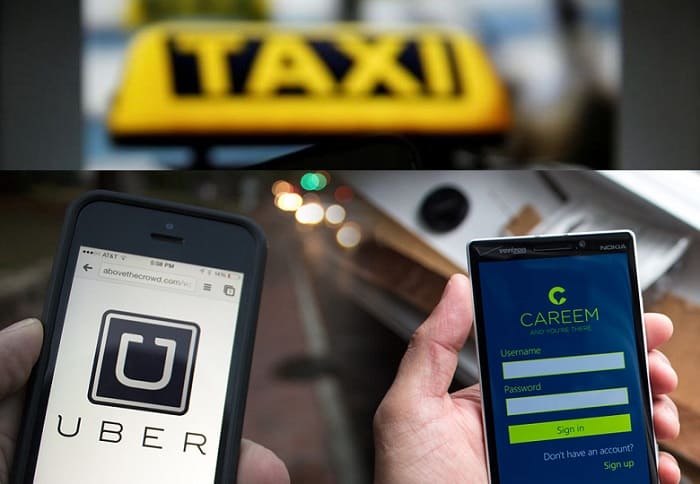ISLAMABAD ( AQEEL SHIGRI )
Have you ever imagined riding on a car for hire despite owning several vehicles? Or riding a plush vehicle without ever having to own one? Until recently these ideas would have sounded very alien to you. The global launch of ride-hailing services a few years back that use mobile applications for booking rides have made it possible!
Advancement in mobile phone technology gave way to the development of millions of mobile applications (apps) including ride-hailing apps that have become worldwide sensations. Uber (108 countries, 633 cities, 1 billion users) is fast becoming a household name as the pioneer of ride hailing services across the world. They were closely followed by the competition that caught travellers’ attention in specific countries – Lyft for the US, Ola for India and Didi for China, etc.
In Pakistan, we either know Uber or Careem (12 countries, 52 cities, 10 million users) that have dramatically transformed the way we travel.
The agile, technology-driven and smart entrants into the ride for hire business are giving a hard time to regular services like the taxi cab, rent-a-car, on-demand car (radio/metro cabs), pick-and-drop providers etc. The worst hit seem to be taxi cab drivers with their ageing cars, preferential rates, and most importantly very basic service. They are no match to the convenience, quality, economy and accessibility of the new ride hailing services. No wonder they have been protesting against them. The service culture in Pakistan is flourishing and now customers have choices. Service providers ought to revisit their customer value proposition and think creatively about offering better services.
The flip side
On the flip side, it isn’t exactly a walk in the park for ride hailing businesses. The evolving regulatory framework, social impact, protests and litigation are but a few issues. The absence of a consensus-based regulation has been a pain for them, though it has so far been dealt with at a provincial level. News of Careem and Uber services being banned in Punjab or their legal position being reviewed or policy clarifications coming through in Sindh were commonplace until recently. But these government reactions aren’t uncommon.
How far the ride-hailing businesses foresaw the social impact of their innovative business idea is a question mark. The media (social, print, electronic) is now littered with reports of sexual harassment and misbehavior internationally. Pakistan is no exception. The credibility of everything that lands on the social media platforms can be questioned but news items appearing in reputable dailies are also backing up the sentiment. (For instance one national daily reporting on June 27, 2017, under the headline: “Careem hits a bump in the road as allegations of harassment emerge”).
Customer awareness on how to tackle the thorny social issues is crucial to the long term survival of this service in Pakistan. Some questions begging clarity are: what should a customer do if they are faced with an unruly driver who misbehaves or makes unsolicited advances? Who is responsible in case violence erupts and matters lead to registering a police case? What penalties are the companies placing on their ‘captains (as they are referred to)’ for misconduct? What does the company expect the customer to do? The same questions also important for the driver who may be faced with an unpleasant customer.
My initial research on Careem and Uber revealed cautious advice on ‘avoidance’ like sharing your route with friends and family, rating your captian, call masking etc. A clear statement on consequences for the drivers or recommended actions for customers is missing. Careem has provided a contact number within their mobile app which offers some, although limited, respite during the rides. They also offer in-ride insurance in the event of injury and accident for both the driver and the customer without any extra cost.

